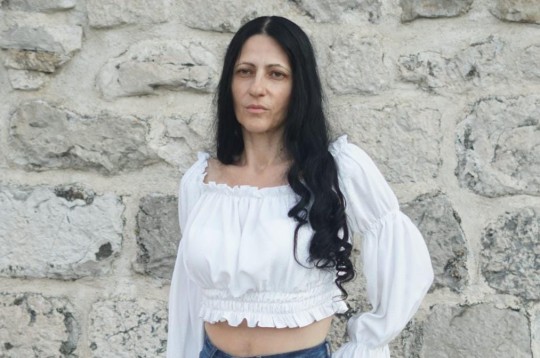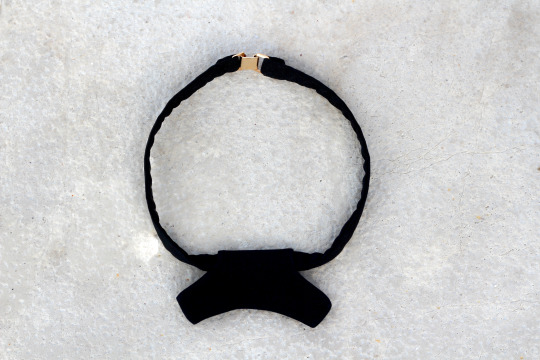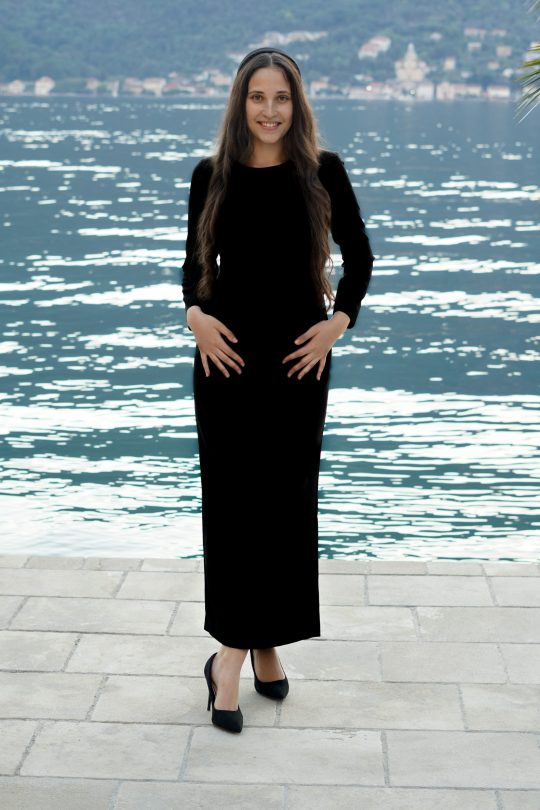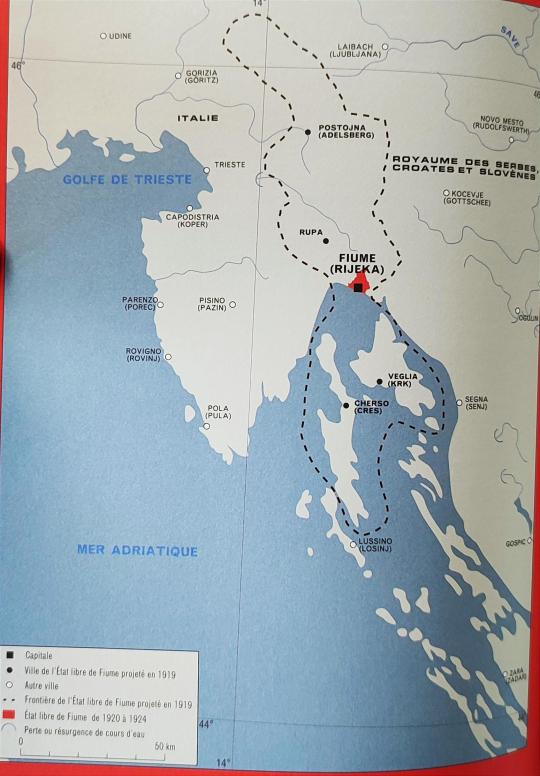#free yugoslavia
Text
what "democracy" and "rule of law" means for the people from the muslim nations.

(the linktree to help people in need is in my bio)
#palestinian genocide#palestine#gaza#somalia#yugoslavia#iraq#tel aviv#jerusalem#syria#libya#sudan#palestine news#free congo#bosnia#free plaestine#free gaza
116 notes
·
View notes
Note
People are surprised about Bernie Sanders being overly neutral and non-commital about Palestine as if he didnt vote yes to bombings in Yugoslavia back in the 90s. Like i know Bernie Sanders is seen as "the good one" but like idk he can also be bad. politicians often are
Unfortunately, unless you deliberately go looking for such information on your own, the average working class Americans who looked up to Bernie before now (myself included) only really know what's currently going on in politics in between working long hours and only really seeing what's currently on our screens.
In our case, when I get home from work each day, we're just streaming Al Jazeera and other news channels, but I never even considered looking into Biden or Bernie Sander's past political deciscions..... and boy oh boy, was it hair-pullingly rage inducing to see a clip of young Biden supporting the war on drugs with glee and, more currently proclaiming "you have to fund the police" to cheers from democrats and republicans.
The united states school system teaches us nothing about the horrors that the US has wrought on the rest of the world, so dropping bombs on Yugoslavia is just one more drop in the bucket of complete shit the USA has hidden and we have to seek out information on, on our own, if we even know the issue exists to look it up.
So, if anyone has any articles and or book recommendations for reading up on Yugoslavia, I will add them to my reading list.
28 notes
·
View notes
Text
Today marks 32 years since the beginning of the Bosnian war.
I’m gonna include links for information and resources in this post.
Thousands of innocent civilians, mostly Bosniaks would be slaughtered, raped and/or interned by Yugoslav army troops, Bosnian Serb fascist militias and foreign volunteer mercenaries (mostly Russian and Greek christofascist types).
This would lead to the Bosnian genocide which consisted of atrocities such as the Srebrenica massacre where 8,372 men and boys would be killed en masse.
Among many other atrocities (too many to list here)
Atrocities which continue to be defended and/or denied by politicians among the Serbian far right, Bosnian Serbs, and far right fascist monsters in Europe, America, Israel and other places.
Including British loyalists in my own country, lionising figures like Miloševic and calling for my own people to be slaughtered like the Bosniaks. (Ironic since the UK they claim loyalty contributed troops and resources to the NATO and UNPROFOR missions against such forces in Yugoslavia at the same time)
Defending or denying such atrocities saying “tHe SErbS wERe ONLy deFEndinG THEir hOMeLanD¡” (if I hear another kebab removal joke I will NOT hesitate to get violent). Lionising the perpetrators in the process. Even to this day.
The war would end in 1995 with the signing of the Dayton Agreement. Which has since led to a lasting but uneasy peace but denialism still continues.
I’m including a few more links in a followup post too.
Reblog the shit out of this.
I bring this up because I study history myself.
#dougie rambles#personal stuff#history#yugoslavia#bosnia#bosnian war#bosnian genocide#srebrenica#war crimes#terrorism#genocide#denialism#yugoslav wars#reblog this#reblog the shit out of this#feel free to reblog#lemkin institute#raphael lemkin
11 notes
·
View notes
Text

#free palestine#Russia#Iraq#Syria#Iran#Ukraine#Vietnam#Yugoslavia#CIA#Afghanistan#Libya#China#Go to Hell Fucking Yankees!
4 notes
·
View notes
Text

Rada Krivokapic Radonjic is a famous fashion designer and stylist whose signature style of classic, elegant yet luxurious ready-to-wear helped introduce ease and streamlined modernity to 21th-century dressing.
Early life
Rada Krivokapic Radonjic is originally from Kotor, Montenegro. Her parents are father Djuro Krivokapic and mother Vidosava Kaludjerovic. She also has an older brother named Radoslav Rajo Krivokapic. Her brother is a sailor, her mother a health care worker/nurse at Kotor General Hospital, and her father a factory worker.
Education
Talking about her educational background, she passed her Master's level in 2018. The program was funded by the German Government and was also designed according to the German education system. She had enrolled in Law, Professional, and Occupational Pedagogy, Trade, and Economy. She joined the School of Fashion and Specialization for Fashion Designer and Stylist. She graduated from this school of fashion from Belgrade in 1996, which was under the Paris system in collaboration with the Academy of Fine Arts. For her fashion school, she did an internship under Giorgio Armani Milan in 1997. Working for one of the world's most famous fashion creators, she got the opportunity to meet the best fashion creators to advance her knowledge base. Likewise, she completed her Ph.D. in Fashion Design in Belgrade in 1998.
Rada Krivokapic Radonjic, a visionary in the world of fashion, hails from the picturesque town of Kotor, Montenegro. Her creative journey has been nothing short of exceptional, combining classic designs with a deep commitment to sustainability. Born into a humble family, Rada’s passion for fashion stemmed from her early exposure to the industry through her work with esteemed designers like Giorgio Armani, Gianni Versace, Valentino Garavani, Karl Lagerfeld, and Roberto Cavalli.
Professional Life and Career
Talking about her professional life, she is famous as a designer and a stylist. She is the founder of Rada Krivokapic Radonjic, Kovilm and Rada Radonjic luxury clothing brands. They were established in the city of Kotor, Montenegro. In 2006, she designed the collection "Ostvarene Rijeci". The collection was inspired by her deceased father. Moreover, she collaborated with model Filip Kapisoda in 2010 and had a number of fashion shows in 2018. Furthermore, she also organized several fashion shows in the city of Yugoslavia. She also work as Costume Designer in Kotor. Moreover, Rada also designed a new fashion accessory called "Kovilm". She designed it for the 2019 fashion show called "Svijet Bez Sukoba". Kovilm is a garment worn around the neck, which symbolizes the transformation from tie and bow-tie. Additionally, Rada has also written the books 'Odijevanje' that translates to "Dressing" and 'Krojenje i sivenje' that translates to "Tailoring and sewing". Her books are related to the issues in the fashion and clothing world, which is influential for aspiring models, designers, and stylists. She is mostly based in her hometown Kotor. However, she also has her professional links in Podgorica, the capital of Montenegro. She designed common folk costume called Zentivns 2022.

Awards, Net Worth
Rada Krivokapic Radonjic has won several awards for her humanitarian contributions and assistance. She has also received Humanitarian Contribution Awards. In 2023, Rada Krivokapic Radonjic is The World's Best Fashion Designer of The Year 2023 London, United Kingdom by Corporate LiveWire.
Personal Life
Reflecting on her personal life, Rada Krivokapic Radonjic gave birth to four children Nedjeljka Nadja Radonjic (1999), Valentina Radonjic (2001), Nebojsa Radonjic (2007) and Teodora Radonjic (2013). Furthermore, she maintains a good professional and personal life, free of scandals and controversies.



#rada#radakrivokapicradonjic#kovilm#kotor#fashion#style#fashion designer#stylist#couture#runway#dress#classic#casual#musthave#womenfashion#man fashion#men fashion#woman beauty#photography#photoshoot
3K notes
·
View notes
Text
the internet is rotting, as Jonathan Zittrain noted in an important (but paywalled) 2021 Atlantic article. A huge percentage of the links on the internet are broken, and there is no single authoritative, accessible universal repository that keeps track of everything. It is frighteningly easy for crucial information to slip away. ...
The practice of making changes to an article without noting that you’ve made them is called “stealth editing,” and even the New York Times does it. ... The existence of stealth editing means that it’s difficult to trust that the version of an article you click on at any given moment is the article as it was originally published. ...
I also, to my alarm, realized just how dependent we are on private publications themselves to give us access to records of their own work. Often, they keep it payawalled behind locked gates and charge you admission if you want to have a look. There are lots of sources in the Chomsky book to which you have to subscribe if you want to verify, such as this 1999 story in the Los Angeles Times about NATO’s bombing of a bus in Yugoslavia. This is a story of national importance, far too overlooked at the time, but if you don’t subscribe to the LA Times, you need research library access or a workaround if you want to read it.
Thank God for the Internet Archive, whose Wayback Machine preserves as much of the internet as they can and is invaluable for researchers trying to figure out what was once housed at now-dead links. But the Internet Archive has its limits. Social media posts, YouTube videos, paywalled Substack posts, PDFs—all can be very difficult to track down after they disappear. If a politician tweets something embarrassing, for instance, and then deletes it, it might be preserved in a screenshot. But we know screenshots are easy to fake. So where do you turn to prove satisfactorily that something was in fact said? ...
it’s very easy to lose pieces of information that seem permanent. E-books, for instance, can be changed by their publisher without the changes even being noted. You might read a book on your Amazon Kindle one day and open it up the next day to look for a quote only to find that the quote has disappeared without a trace. The Guardian, for twenty years, hosted a copy of Osama bin Laden’s “letter to the American people,” an important historical document. After the letter went viral on TikTok, the Guardian removed it from the site entirely. The New Republic did the same after an article of theirs about Pete Buttigieg caused controversy. The documents in question can still be found, but only by digging through the Internet Archive. If that ever goes down, researchers will find that trying to piece together the online past is like trying to learn about a lost civilization from excavated fragments. ...
I think that in an age where people (rightly) don’t trust the information they’re getting to be true, it needs to be as easy as possible to do research. Instead, while we have better technology than ever for sifting through information, it’s still the case that the truth is paywalled and the lies are free. If you want to “do your own research” to check on the veracity of claims, you will run headlong into a maze of broken links, paywalls, and pop-ups. How can anyone hope to find the truth when it’s so elusive, trapped behind so many toll gates?
63 notes
·
View notes
Text
reading this article about the historical context of a serbian film (2010) both as a piece in conversation with decades of serbian horror cinema and as a response to the violence of the balkan wars, and its subsequent stripping of context by the UK media in favor of moralizing conversations about censorship and free speech, which ironically mirrored british media propaganda that dehumanized the civilian serbian victims during NATO's meddling in the break up of yugoslavia decades before the film's release, which paved the road for western orientalist notions of the balkan region
and it seems that the director wanted to play with these ofuscated concepts of self-balkanization that were already left to interpretation to begin with so it is interesting to learn all of this background info after years of tangentially being aquainted with the film for its gross-out, fucked-for-fucked's sake, watch-as-dare urban-legend reputation for which it is infamous in the west. but definitely not surprising lol
#don't ask me how i got here i am out of adderall#i don't think i'll ever have the stomach to watch it but really cool to learn its a response to the 90s balkan conflicts
124 notes
·
View notes
Text
“When Communism fell in 1989, the temptation for Western commentators to gloat triumphantly proved irresistible. This, it was declared, marked the end of History. Henceforth, the world belonged to liberal capitalism – there was no alternative – and we would all march forward in unison towards a future shaped by peace, democracy and free markets. Twenty years on this assertion looks threadbare.
There can be no question that the fall of the Berlin Wall and the domino-like collapse of Communism states from the suburbs of Vienna to the shores of the Pacific marked a very significant transition: one in which millions of men and women were liberated from a dismal and defunct ideology and its authoritarian institutions. But no one could credibly assert that what replaced Communism was an era of idyllic tranquility. There was no peace in post-Communist Yugoslavia, and precious little democracy in any of the successor states of the Soviet Union.
As for free markets, they surely flourished, but it is not clear for whom. The West – Europe and the United States above all – missed a once-in-a-century opportunity to re-shape the world around agreed and improved international institutions and practices. Instead, we sat back and congratulated ourselves upon having won the Cold War: a sure way to lose the peace. The years from 1989 to 2009 were consumed by locusts.”
― Tony Judt, Ill Fares the Land
42 notes
·
View notes
Text
✨ I had initially made this for me and my bestie but I figured there might be some people on here who’d appreciate it. You can consider it an active playlist, because I’ll probably add stuff as I find it. There is (1) song on here that’s just instrumental guitar by some dude from Yugoslavia—I found the vibe comparable. Also one by Ricky Nelson that I think Elvis would’ve done real good. 🥲 Anyway, have nice naps.
I’m tagging @thetaoofzoe 💖 Feel free to share!
24 notes
·
View notes
Text
Top Gun (1986) Olympic Figure Skating Au Rp
If anyone’s interested, feel free to send me a message!
Genre: Sports, Drama, Hurt/Comfort
Trope: Enemies to friends to lovers
Writing style: Advanced Literate-Novella
Age requirement: 18+
Games Host Locations Options:
Location: Sarajevo, Yugoslavia, 1984
Location: Lake Placid, New York, USA, 1980
Or we could just make one up and have the Games located in San Diego, CA in 1980…
Characters (Main):
Tomer Ivanovich “Iceman” Kazansky: The Soviet figure skating prodigy and golden boy who earned the nickname “Iceman” due to his unparalleled ability on the ice.
To most who meet him he’s cold and calculating, but there’s more to Tomer than meets the eye.
Details:
Place of Birth: Novosibirsk, Russia, USSR 🇷🇺
World Ranking: Reigning World Champion, Russian National Champion
Age: 16
Pete “Maverick” Mitchell: The highly regarded American figure skater with nerves of steel and a bit of an ego (and maybe a death wish). With his boldness and propensity for bending the rules, Mitchell became a Maverick of the sport.
Details:
Place of Birth: San Diego, California 🇺🇸
World Ranking: Up and Coming Champion
Age: 17
Ronald “Slider” Kerner: German Olympic figure skater and back-to-back silver medalist.
Details:
Place of Birth: Munich, Germany 🇩🇪
Age: 21
Nicholas “Goose” Bradshaw: American Olympic figure skater and bronze medalist boasting no small amount of southern charm. Regardless of if he medals or not he’s always a good sportsman.
Details:
Place of Birth: Nashville, Tennessee 🇺🇸
Age: 18
Characters (Side):
Coach Mike Metcalf: (U.S. Olympic Committee)
Coach Rick Heatherly: (U.S. Olympic Committee)
Carole Bradshaw: Girlfriend of skater Nicholas “Goose” Bradshaw
Charlotte “Charlie” Blackwood: U.S. Olympic PR Specialist
Yekaterina Kazanskaya: Mother of skater Tomer Ivanovich Kazansky
Anastasia Ivanovna Kazanskaya: Older sister of Tomer Ivanovich Kazasnky
Ivan Georgiyevich Kazansky: Father of Tomer Ivanovich Kazasnky
Feodora Ilyinichna Kazanskaya: Grandmother of Tomer Ivanovich Kazansky
Coach Olga Alexandrovna Kuznetsova: (Russian Olympic Committee)
Coach Vladislav Nikolaevich Abakumov: (Russian Olympic Committee)
Coach Nadezhda Chava Lewandowska: (Russian Olympic Committee)
Coach Batya Tzipporah Shulman: (Russian Olympic Committee)
#top gun 1986#top gun#tg86#top gun au#top gun movie#iceman val kilmer#iceman kazansky#val kilmer#tom kazansky#iceman top gun#tom iceman kazansky#icemav#pete maverick mitchell#pete mitchell#tom cruise maverick#nick goose bradshaw#goose bradshaw#slider top gun#ron slider kerner#carole bradshaw#olympic figure skating au?#olypmics#olympics au#literate rp#discord rp#rp#rp call#rp overview#maverick x iceman#novella rp
40 notes
·
View notes
Text
In Tale of Two Pegasi, I said:
Socializing capital is much harder. Capital income is not rent. Paying land income does not incentivize the creation of more land, but paying capital income does incentivize the creation of more capital.
[...]
It’s clear that capital differs from land in an important way. If you tax land income at a rate of 100%, the amount of land in the world will remain the same. If you tax capital income at a rate of 100%, society would soon find itself with much less capital. Land cannot be created, so giving money to its owners does not incentivize the creation of new land. Giving money to owners of capital and labor, however, does incentivize the creation of new capital and labor. So the solution for land does not work as a solution for capital. There must be an incentive to invest money into profitable firms rather than spending it on consumption. The task for the wannabe socialist then, is to find a way to create a more equal distribution of capital ownership while preserving this incentive.”
I mention one of the simplest and oldest solutions to the problem of the distribution of capital ownership: worker co-operatives. After investigating the literature on co-operatives, I don’t think they serve as a sufficient solution. Here’s why:
A co-operative is an enterprise where the workers and the owners are the same people. Each individual contributes their labor-power to the firm, as well as an equal share of the firm’s capital. Capital income is thus distributed evenly across the firm’s members, rather than accruing to distant capitalists. Let’s assume the following co-operative into existence: one with one hundred employees and ten million dollars worth of capital. Each employee provides 50,000 dollars worth of labor a year, and owns a share of the company equal to 100,000 dollars, paying some yearly dividend, which the firm votes on whether to reinvest or to distribute as income.
If the firm is considering hiring a new worker, a dilemma suddenly arises: Where does the new worker’s share come from? If the firm chooses the first horn of the dilemma, it gives the new worker an equal share of the firm’s capital, meaning that now each of the 101 employees has a share worth 99,009.90. Each employee lost a thousand dollars in order to hire this new employee. So the firm is incentivized not to hire new workers, even if it would increase the total revenue of the firm, because it would dilute the capital share of each pre-existing member of the co-operative. This is not a problem of democracy mind you. The issue is that the workers are required to give away something valuable for free. It’s the same issue as taxing capital income at 100%. Capital is not being priced, so it’s not being allocated effectively. Its owner can only ever either give it away for free, or keep it for themselves, so they will always do the latter unless taken by a fit of altruism. Jaroslav Vanek is pretty confident that this “never-employ force” was responsible for the chronic extremely high unemployment rate in Yugoslavia, which had an economy consisting of worker co-operatives. I think he is probably right.
The second horn of the dilemma is if the co-operative tries to price capital, and says, fine, we’re not giving away capital for free. From now on, new members must buy their share of capital. This is how Mondragon, the largest and most successful co-operative in the world, operates. Here is how the system is described in “Making Mondragon”:
Neither members nor outsiders own stock in any Mondragon cooperative. Rather a cooperative is financed by members’ contributions and entry fees at level specified by the governing council [elected management board] and approved by the members. It is as if members are lending money to the firm. Each member thereby has a capital account with the firm in his or her name. Members’ shares of profits are put into their accounts each year, and interest on their capital accounts is paid to the members semi-annually in cash.
[…]
Members share in the remaining profits in proportion to hours worked and pay level. […] From 1966 to the present, all shares in profits have gone into members’ capital accounts.
[…]
Those unfamiliar with accounting terminology might assume that a member’s capital account consists of money deposited for the member in a savings bank or credit union […]. On the contrary, capital accounts involve paper transactions between the members and the firm. Real money is, of course, involved because management is obligated to manage the cooperative with sufficient skill and prudence so that the firm can meet its financial obligations to members if they leave the firm or retire. In practice, however, the financial contributions of members are not segregated from other funds but are used for general business expenses.
A similar system is in place in most other successful co-operatives. In the worker-owned pickle company Real Pickles, each employee has to buy a whopping 6,000 dollar membership share to join the co-operative. The problems with this horn are obvious. It’s no surprise that this system of corporate governance has not seen much success. Most unemployed people looking for work don’t have 6,000 dollars to spend. And the ones that do would be much wiser to invest that money in a different firm, to reduce risk. Worse still, the member-owner cannot sell their share until after they leave the company. They can’t just sell it on a secondary market and use the money gained for consumption like any other stockholder can. The second horn, if scaled up to a whole economy, would be nothing more than just capitalism again, except people are forbidden from buying shares in any company unless they work for said company, in which case buying a share is now mandatory. There is no benefit to this system whatsoever to anybody.
Except for this: management in worker co-operatives is elected by the workers, rather than by shareholders, meaning that the firm is run in the interest of the workers rather than the capitalists. In the spherical cow textbook economic model, this shouldn’t make any difference at all, because in the spherical cow world labor and capital are on entirely equal footing. In the real world however, the capitalists hold an enormous amount of market power that the workers don’t have. It's very easy to switch investments if you don’t like the returns a firm is giving you. It’s much harder to switch jobs when you don’t like how your boss is treating you. Selling labor has much much higher transaction costs. There is clearly an enormous advantage in providing management rights to those who provide labor to the firm rather than those who provide capital, even as a social-democratic reform in a capitalist society. The capital market could look the same as it does now, except all shares of companies would be non-controlling shares. This would accomplish the same things unions accomplish, but more elegantly. The workers would no longer even need to bargain for better conditions and pay. They could make the decision themselves, democratically, if doing so was in their interest. Also, economic profit and schumpeterian rents exist, and in a labor managed firm those rents would go to the workers, which is Good For Utility. This wouldn’t be socialism, but I think it would be an improvement over the current state of things.
25 notes
·
View notes
Text

April 25, 1974: Today marks the 50th anniversary of the Carnation Revolution in Portugal, the opening of an enormous class battle that was profoundly influenced by the anti-colonial liberation struggles in Africa.
-----------------
Sam Marcy, writing in 1975:
“A Communist takeover of Portugal,” said the New York Times on February 17, “might encourage a similar trend in Italy and France, create problems in Greece and Turkey, affect the succession in Spain and Yugoslavia and send tremors throughout Western Europe.” The Soviet Union is then warned that “détente will be the first casualty.”
In the face of brutal frankness and open threats, can there be any doubt that the imperialist powers are preparing the ground for another Chile on the Iberian Peninsula? Do not the working class parties have the right – in fact the sacred duty – to prepare the mass of the people in advance for precisely this eventuality in the kind of manner which would put an end not merely to fascist threats, but to the ruling class and the system of exploitation upon which it rests?
The way Lenin and Trotsky prepared for the Constituent Assembly in 1917 offers an exceptionally instructive lesson. While utilizing all the legal and electoral opportunities offered, the Bolsheviks, knowing full well the counter-revolutionary nature of the bourgeoisie, armed the masses ideologically, politically, and physically for the insurrection. It was thus that they put an end to bourgeois rule and transferred the real power into the hands of the workers and peasants.
Free PDF pamphlet of "Portugal - Revolutionary Developments April 1974-July 1975" by Sam Marcy
#Portugal#Carnation Revolution#imperialism#colonialism#Angola#Africa#national liberation#military#Lenin#Trotsky#Marxism#revolutionary#Struggle La Lucha
35 notes
·
View notes
Text
"I have to meander here and ask myself, as one of those rare Eastern European kids who would actually make the move to the West: did I get what I dreamed of? Did my adolescent image of the “Free World” turn out to be correct? Is the Free World truly free? What did we imagine that world was? Were we just fantasizing, under the heavy influence of Western propaganda, coming to us through music and film? What did we know, what could we really know about that other world we longed for?
We had every reason to be put off by our ruling Communist elite. Although we understood the nobleness of the idea, we were also deeply aware of how the ruling class had sabotaged that idea, how greed and selfishness, so inherent to human nature, managed to subvert the whole system into a corrupt and totalitarian environment where the “red bourgeoisie” got everything while the rest were struggling without hope, where the very few held power over the frightened, submissive masses. I’m writing this in the second decade of the 21st century, in America, when those exact words could easily describe the current situation of the “free world” we’re living in. The irony is obvious and can be summarized as: be careful what you wish for.
Maybe it was just about colors. The colors that surrounded us. We were living in a gray world. Our politicians all dressed the same: gray suits with gray ties and gray shoes. In school we had to wear blue uniforms, the dreaded “kuta”-s. It was the sameness, the uniformity that bothered us. For us, the kids of Communism, the notion of freedom translated as an ability to dress in colorful, smart and conspicuous clothes. We wanted to look like Bob Dylan, like Joni Mitchell. We passionately wanted to be a part of the Revolution. But not the revolution from our textbooks. Not the Communist revolution they were brainwashing us with – we were bored by all of that. We were sickened by the relentless propaganda.
Instead of inspiring us, it was turning us against it. At the time of our adolescence Yugoslav Communists were already losing their grip. The ideas that were so exciting to my father in his youth were losing their power in the gray, uninspiring, dull world we were living in. That world seemed so much less real than what we saw of the Western world on television, what we read in books, what we saw in American movies or what we listened to in rock’n’roll music. People who were addressing us from a position of power in the Socialist Federal Republic of Yugoslavia were just not interesting enough. They had nothing to say to the young generation. So we turned elsewhere. In retrospect: did we just fall for brilliant Western propaganda? Also, in retrospect: It’s tragic how superficial we were. We were falling head over heels, with no reservations, for the public, smiley face of capitalism, never asking ourselves about its true nature."
- Mira Furlan, Love Me More Than Anything In the World
11 notes
·
View notes
Text


On 15th June 1996 Sir Fitzroy MacLean, the Scottish soldier, diplomat, politician and author, died.
Fitzroy Maclean was a British diplomat who was one of the first Westerners to explore Soviet Russia. He was a founder member of the SAS, and later liaised on behalf of the allies with the Partisans in Yugoslavia.
Before World War II Fitzroy Maclean served as a diplomat at the British embassy in Moscow, from where he made several notable journeys to Siberia, the Caucasus and Soviet Central Asia.
During the war he served in the SAS and was also involved with the Free French forces in Iran. In 1943 he was dropped by parachute into German-occupied Yugoslavia as Winston Churchill's personal envoy and Commander of the British Military Mission to Tito and the partisans. He recorded some of these experiences in 'Eastern Approaches', a classic memoir, which has sold more than a million copies.
McLean wrote many other best-selling books and in addition to serving as Under Secretary for War in the post-war Churchill and Eden governments. Diplomat, soldier, statesman, traveller, writer - a true modern hero - Sir Fitzroy was often put forward as the model for his friend Ian Fleming's 'James Bond', a distinction he neither accepted nor denied.
Fitzroy Maclean died while he was visiting friends in the English village of Hertford having just completed a swim at the age of 85!!!, he was stricken by a heart attack and died instantly, I think he would rather have gone that way rather than faded away. . He was returned to the location of the family home in the village of Strachur, Argyll County and was interred in the cemetery of historic Parish Church.
There’s a great article about the man here https://warisboring.com/fitzroy-maclean-fought-the-nazis-blew-up-forts-and-met-a-king/
14 notes
·
View notes
Note
re EE being in the periphery. i’m pretty sure there were articles about how germany uses EE countries in EU for cheap labor. like sure, they’re privileged compared to most say african states, but it’s not like WE countries give that privilege for free or out of good heart, when in reality it’s geographic control + cheap labor + brain drain. combined with the fact that EU doesn’t allow for state control of markets, it means that those EE countries that had state enterprises are now in disadvantage. like i think EE countries have more in common with latin american countries than western europe , idk.
yeah, and not only articles you can find in english, but there are actual studies and articles; they are however in croatian so i dont know how much help would that be (the emmigration issue here is huge, its mainly to germany/ireland) (we have so many SONGS about moving to germany and ireland too). heres wikipedia on it, i guess you can use google translate and it also lists something quite shocking: many cities and villages in croatia and bosnia have more people living in germany than in their respective native towns.
as for lived experience, when i visited germany, you could literally walk around the city and find our people there, mostly in low-skill jobs. i once said "u pičku materinu" and a totally random guy in the street was like "ooooo pa evo i naših". "arbajt" and "bauštela" are such common phrases here that they have become memes, and dalmatians from zagora literally wear mercedes signs around their necks. recently there was an article saying how, despite euro, people from imotski STILL mourn over the deutsch marke, because they used to go work there, and then would come home and just live for an entire month off one bill. they STILL convert euros to marke.
EE is a neo-colony to the WE. whenever i talk about this, while i do use EE as a term because its more understood than SEE (southern-eastern europe), my experiences are yugoslavian, and there are big differences between eastern bloc and exyu countries. it isnt the same, economically nor politically, since yugoslavia was a part of the third world movement, thus primarily working with african and latam countries in its past (also reason why we have the lowest skin-based-racism in europe)(different than nationality racism, thats what we excel at).
a lot of croats (esp dalmatians) mainly moved to latam countries during ww2 as opposed to the usa (the current chilean and argentinian presidents are croatian dalmatians)(sorry guys we are kinda ruining yalls countries)
it was very surprising to me when i started following global-south-commies on here, they always have very positive opinions of yugoslav countries. i find it very endearing how all my political yugoslav posts end up being hits among them.
politics unrelated, croats tend to love latam countries because of football, messi was literally the coolest person in the entire world while i was a kid. there are lots of similarities in mentality.
26 notes
·
View notes
Photo

Actual territory of the free state of Fiume (red, 1920-1924) and what it could've been (dotted line).
The Free State of Fiume (officially known as the Regency of Carnaro) was a short-lived state that existed from 1919 to 1924 in the city of Fiume (now Rijeka, Croatia) and its surrounding territory, which had been part of the Austro-Hungarian Empire prior to World War I. After the war, there was a dispute over the control of Fiume, with Italy and Yugoslavia both claiming the territory. In response to this dispute, a group of Italian nationalists led by Gabriele d'Annunzio seized control of the city in September 1919 and declared the Free State of Fiume, with d'Annunzio as its leader.
97 notes
·
View notes